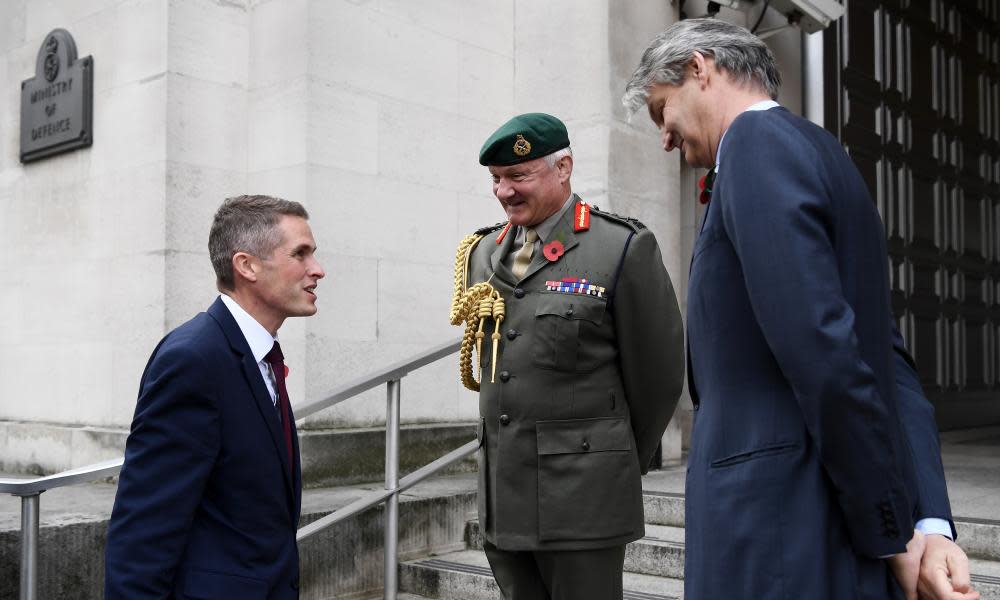Whitehall isn't working? Whose fault is that, minister?

Brexit may be among the current main reasons why British central government isn’t working – but there’s another reason that long precedes it: ministers don’t get on with their permanent secretaries – and vice versa.
What are politely called “dysfunctional relationships” abound, highlighted between the lines in many official reports. But, until now, these bad relationships at the very top of the government have hardly ever been discussed in public. If they are mentioned at all it is in one-to-ones between permanent secretaries and the cabinet secretary, Sir Jeremy Heywood.
But the Commons public administration and constitutional affairs committee, under Sir Bernard Jenkin, has now lifted the lid on this relationship breakdown, in its report on Whitehall effectiveness.
The committee did not have far to look. Last week’s National Audit Office report on universal credit, for instance, was an excoriating account of policy and delivery failure at the Department for Work and Pensions, and was largely about the broken-down relationship between former minister Iain Duncan Smith and former permanent secretary Sir Robert Devereux.
Other departments with problems in recent years include the Home Office, education and defence.
Meanwhile, Chris Grayling’s relationships with Ursula Brennan, his permanent secretary at the Ministry of Justice, and now with Bernadette Kelly, permanent secretary at transport, seem to be central to the problems that seem to follow the transport secretary around.
As many as half of relationships between permanent secretaries and their secretaries of state may be dysfunctional
For its report, Jenkin’s committee commissioned research from Professor Andrew Kakabadse, of the Henley Business School, who reckons, astonishingly, that as many as half of relationships between permanent secretaries and their secretaries of state are dysfunctional and vulnerable to collapse. Either the wrong people have been appointed to the top jobs in many departments, which is hardly complimentary about Heywood’s HR skills, or ministers in Theresa May’s government can’t hack it and blame their top official. As one permanent secretary put it, there is tension between “the urgency of the political imperative pursued by the secretary of state versus the evidence-based, more grounded perspective of the immediate landscape surfaced by the permanent secretaries.”
Kakabadse’s report adds to all previous evidence suggesting that top civil servants are first and foremost courtiers. They go out of their way to flatter and hand-hold. “The department’s job is to support the government of the day and the secretary of state of the day to deliver his or her objectives, it’s as simple as that,” says one. Of course it is not as simple as that – but the words capture a principal Whitehall ambition: keep the minister sweet and the show on the road.
Permanent secretaries could be fairly criticised for a lack of expertise, truncated assignments and a foreshortened perspective, putting the interests of their own department first. But the same criticisms apply in spades to ministers.
The defence secretary, Gavin Williamson, for instance, is a May ally put in place to solve a short-run Tory party problem. He has no defence background and little feel for the domain, if his outbursts like the one over the Salisbury attacks are anything to go by. Williamson’s permanent secretary, Stephen Lovegrove, is himself newish in his job and a corporate financier by background. They may have a relationship made in heaven, but their leadership of UK defence at a critical time could hardly be called strong and stable.
Perhaps it has always been this way – but the added ingredient in this Tory era is an ideological dislike of government spending and “bureaucracy”, and MPs are downbeat about what can be done. Recent attempts to improve governance – such as the David Cameron-era wheeze of department boards, or the idea of single departmental plans – have failed.
Jenkin’s committee exhumes the idea of a training college with “space to reflect on how the civil service should be more mindful of itself and can transmit values, attitudes and positive behaviour”. But the reflexes of Francis Maude, the former cabinet office minister and the man who abolished the National School of Government, are alive and kicking among present ministers.
Share your views with us via @guardianpublic
Looking for a job in central or local government, or need to recruit public service staff? Take a look at Guardian Jobs

 Yahoo News
Yahoo News 
